Biological Chemistry
Facilities:
- Blood draw room: Blood drawing, common area for all laboratories. Located on the mezzanine floor.
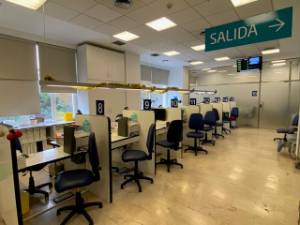
- Main laboratory: Located on the ground floor. Includes the sections:
- Preanalytics: Receipt, centrifugation, handling, preparation, preservation and storage of samples. Common area for all laboratories.
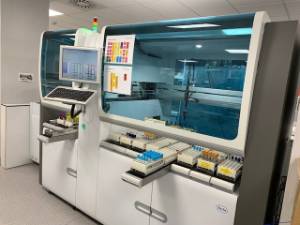
- Biochemistry:
General biochemistry: We have Europe's largest Roche biochemical analyser chain.
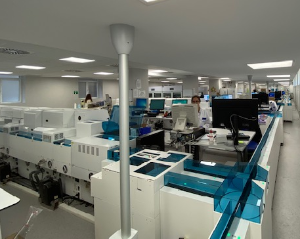
-
Special biochemistry.
- Urine Biochemistry: We have the world's largest Sysmex urine analyser chain.
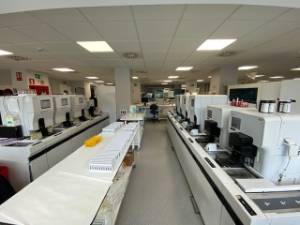
- Quality of care section.
- 24/7 Emergency Laboratory.
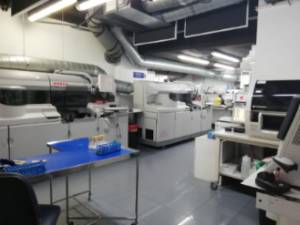
Techniques and procedures:
Fundación Jiménez Díaz's Clinical Laboratory Department is equipped with the technology required for basic diagnostic biochemistry, whether in blood and or urine. It receives samples from the dependent primary healthcare areas, and is a referral centre for other hospitals in Quirónsalud group. Particularly noticeable in this regard is the high level of automation and integration with the computer systems in the different hospitals, ensuring a seamless transfer of information.
1. Receipt of samples:
We use the HERMES system for exhaustive control over the transportation containers received from various hospitals, enabling us to track the origin of each container and the temperature of the samples during transportation through the sensors fitted inside.
2. General biochemistry:
We have eight C702 modules with a processing capacity of 16,000 tests per hour and four ISE modules with a capacity to process 7200 tests per hour.
3. Hormones, tumour markers and serology:
We have six E801 modules which can process up to 1800 tests per hour.
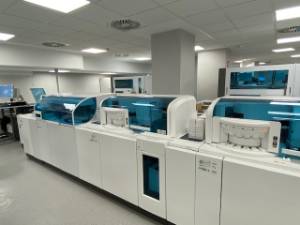 4. Urine:
4. Urine:
We work with the largest Sysmex UN-SERIES chain in the world for urinalysis, creating a new urine section for comprehensive analysis of urine by flow cytometry, sediment study and screening of samples for microbiology
5. Seminograms:
These are performed with the SCA (Sperm Class Analyser) system for semen analysis, ensuring an accurate repetitive evaluation of sperm motility and concentration.
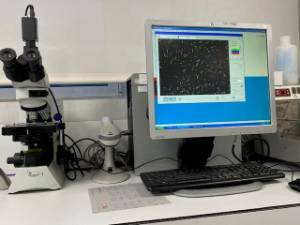
6. Special biochemistry:
We determine lactose intolerance using a qualitative in vitro FluoroType® LCT assay. The C/T polymorphism at position 13910 of the LCT gene is known to correlate with primary lactose intolerance. While the C/C genotype is associated with total intolerance, the C/T and T/T genotypes are mainly associated with mild intolerance or lactose tolerance. The test is performed with the FluoroCycler®.
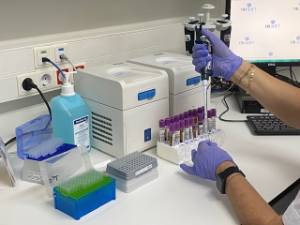
Hospital Universitario Fundación Jiménez Díaz
Avda. Reyes Católicos, 2
28040 Madrid Madrid
© 2026 Quirónsalud - All rights reserved























